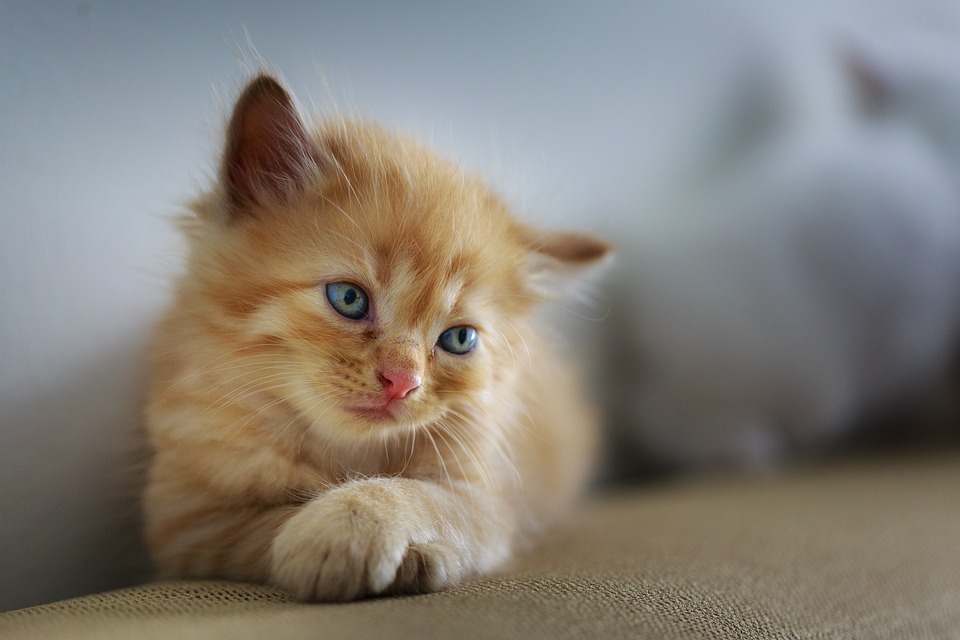*By Jennifer Smith*
As a cat owner, you may have encountered possessive behavior in your feline companion at one point or another. Cats can be highly territorial, and their possessiveness over resources such as food, toys, or even their humans can lead to undesirable behaviors. In this article, we will explore the causes behind possessive behavior in cats and provide effective strategies to manage and address this issue.
Understanding Possessive Behavior in Cats
Possessive behavior in cats can manifest in various ways, including aggressive behavior, growling, hissing, and even biting or scratching. This behavior is often a result of the cat’s instinctual need to protect their resources, secure their territory, or establish dominance over other cats or pets in the household.
It’s important to note that possessive behavior in cats can also be influenced by their past experiences, such as trauma or lack of socialization during their early life. Additionally, certain medical conditions or hormonal imbalances can contribute to possessiveness in cats. Therefore, it is crucial to consult with a veterinarian to rule out any underlying health issues that may be causing or exacerbating the problem.
Strategies to Manage Possessive Behavior
1. Provide Sufficient Resources: Ensuring that your cat has an ample supply of resources can help minimize possessive behavior. Each cat should have their own food and water bowl, litter box, and individual toys. This way, they won’t feel the need to guard these resources as fiercely.
2. Create a Calming Environment: Cats thrive in a peaceful and stress-free environment. Provide your cat with designated areas where they can retreat and feel safe. This can include cozy hiding spots, elevated perches, or even a separate room with their essentials. By offering them a space of their own, you can reduce their need to guard the entire household.
3. Implement Positive Reinforcement: Rewarding your cat for non-possessive behaviors can help reshape their behavior over time. Whenever your cat shows calm and non-aggressive behavior around resources or other pets, offer them treats, praise, or playtime. Positive reinforcement helps create positive associations and encourages desired behavior.
4. Gradual Desensitization: If your cat displays possessive behavior towards specific individuals or pets, it may be necessary to gradually desensitize them to these triggers. Start by introducing short supervised interactions and gradually increase the duration as long as the behavior remains calm. This process can help your cat associate positive experiences with the presence of the trigger, reducing possessive tendencies.
5. Seek Professional Help: In severe cases or if the possessive behavior persists despite your efforts, it is advisable to seek professional help from a certified animal behaviorist. They can provide tailored guidance and develop a behavior modification plan specific to your cat’s needs.
FAQs about Managing Possessive Behavior in Cats
Q1: How long does it take to modify possessive behavior in cats?
A1: The duration of behavior modification can vary depending on the severity of the possessive behavior and the cat’s individual temperament. It may take several weeks or even months of consistent training and reinforcement to see significant improvement.
Q2: Can possessive behavior in cats be completely eliminated?
A2: While complete elimination of possessive behavior may not always be possible, it can be effectively managed and reduced with the right approach. Understanding your cat’s triggers and implementing appropriate strategies can greatly improve their behavior.
Q3: Are certain cat breeds more prone to possessive behavior?
A3: Although possessive behavior can be observed in cats of any breed, some breeds may have a higher tendency for possessiveness. However, it’s important to remember that each cat is an individual, and their behavior is influenced by various factors beyond their breed.
Q4: Can possessive behavior in cats be a sign of a medical issue?
A4: Yes, possessive behavior can sometimes be a symptom of an underlying medical condition or hormonal imbalance. It is advisable to consult with a veterinarian to rule out any potential health issues before addressing the behavior.
Managing possessive behavior in cats requires patience, consistency, and understanding. By implementing the strategies mentioned above and seeking professional guidance when needed, you can create a harmonious environment for both you and your feline companion. Remember, the key to success lies in providing love, care, and positive reinforcement to help your cat overcome their possessive tendencies.








